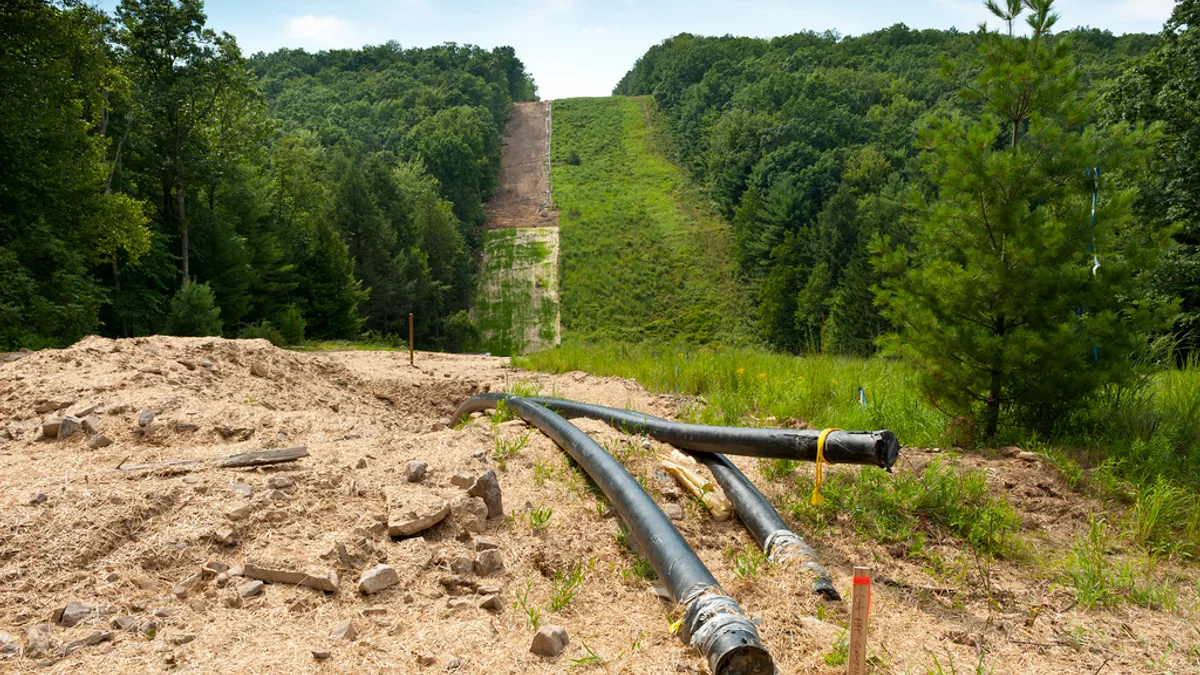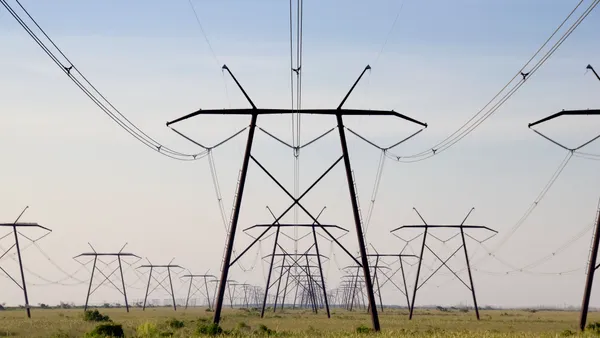Dive Brief:
- The Virginia Department of Environmental Quality announced it will hold a public comment period, including five public hearings in August, before making a final determination on water quality certifications for the proposed Atlantic Coast and Mountain Valley pipelines.
- Regulators will take comment on what are known as "401 certifications," which can place conditions on pipeline construction and activities in upland areas that are near state waters. The DEQ said the certifications are "in addition to" the requirements imposed by the Federal Energy Regulatory Commission and by the U.S. Army Corps of Engineers.
- ACP would run 600 miles, stretching from North Carolina into West Virginia, along with three planned compressor stations; the Mountain Valley line would stretch 300 miles through Virginia and West Virginia.
Dive Insight:
ACP and Mountain Valley are still both awaiting FERC certifications, but their paths to construction just got more complicated. Virginia regulators will now allow the public to take a closer look and give their input.
DEQ Director David Paylor said in a statement that pipeline construction "is a complicated process."
"These hearings and the comment period are very important to helping DEQ meet its goal of protecting water quality," Paylor said.
The pipeline projects are the subject of passionate opposition campaigns, with critics worried the pipelines will threaten water quality and construction will destroy valuable forested land.
DEQ will hold three hearings focused on ACP and two on Mountain Valley, all in the first half of August.
Melanie Davenport, DEQ director of water permitting, told The Richmond Times-Dispatch that the agency has had to develop a new process to review the two pipelines due to their size and scope.
"We’ve built a process that doesn’t look like anything we’ve done before because we’ve never had a project like this before,” Davenport told the newspaper.
Last month, FERC staff issued a final environmental impact statement concluding the 300-mile Mountain Valley Pipeline project could move forward. In December, ACP received a favorable draft environmental assessment and FERC is targeting July 21 for a final report.
Before either project could move forward, President Trump's FERC nominees will need to be confirmed by the U.S. Senate so the agency can regain a quorum. It has been without sufficient members to make regulatory decisions since February.














